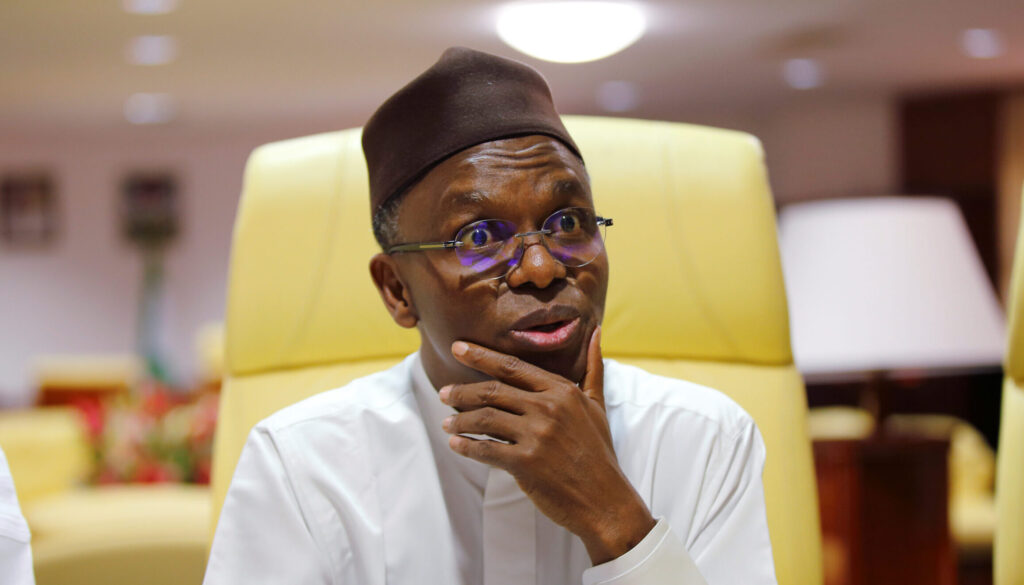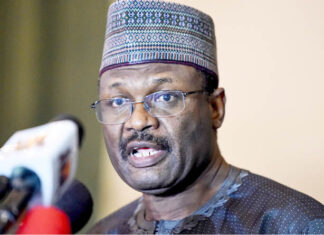By Emeka Alex Duru
Perhaps, very few topics, if any, had come up repeatedly in major public discourses in the country, in recent times, as the issue of restructuring. Like the mythical incubus – the bad dream that refuses to go, the discussion has regularly cropped up, despite pronounced efforts by the successive governments to keep it at bay. Since the erstwhile Nigerian Bar Association (NBA) President, Alao Aka-Bashorun, and like minds in the civil society blew the lid on the need for sovereign national conference in the 1980s, the agitation for a restructured Nigeria, has not ceased.
Issues listed by Aka-Bashorun and his group for deliberation included a restructured system anchored on an ideal federal structure with its attributes of fiscal and regional autonomy, resource control and equitable distribution of the national wealth. Though the then Ibrahim Badamasi Babangida (IBB) administration had stood down the demand, the fire has been on, close to 40 years after, drawing to its side, Nigerians that earlier opposed to it and those undecided on the matter.
Obasanjo, Adeboye, others join the fray

General Overseer of the Redeemed Christian Church of God (RCCG), Pastor Enoch Adeboye and former President, Olusegun Obasanjo, are among the latest converts. Adeboye in lending his voice to the clamour for the restructuring of the country described it as way to avoid break-up. He was emphatic that restructuring Nigeria must be done as soon as possible to prevent disintegration. “We all know that we must restructure. It is either we restructure or we break. You don’t have to be a prophet to know that one. That is certain – restructure or we break up”, the cleric remarked in a rare public comment. His recommendation is a system of government tailored along the framework of the United States of Nigeria – a loose federation of sort.
Adeboye’s intervention, surprising as it appeared, was not as startling as that of the ex-president, Obasanjo. In his days in office, Obasanjo practically stood against the idea, insisting that he would not provide a platform that might serve as a basis for the dissolution of a united Nigeria. Even the 2004 National Political Reform Conference of his administration, turned out a diversionary exercise to parry the topic. But he has turned full circle and embraced the idea as the only way to assuage ill-feelings arising from contending interests in the country.
Against the backdrop of heightened insecurity occasioned by the Boko Haram terrorists, herdsmen/farmers clashes, banditry, kidnapping, militancy, armed robbery and apparent collapse in governance, Obasanjo saw restructuring as offering the way out.
“My personal conviction is that, with the experience we have had operating the current Constitution where we have seen some important aspects of the Constitution being breached willfully and wantonly, and with the centre seemingly being overwhelmed by the issue of security, with crying need from different quarters for reform of the basic structure of Nigeria’s federating units, there is need for the repositioning of our country for the purpose of unity, equity, competence, good governance, security, stability, healthy competition, justice, fast socio-economic development and making Nigeria undisputed regional leader”, Obasanjo stated. Babangida and former Vice President, Atiku Abubakar, had earlier argued along that line.
Ekwueme and the way out
Erstwhile Vice President, the late Alex Ekwueme, had actually laid a foundation that could have given form to a restructured country, if his contributions at the1994-1995 Constitution Conference that gave birth to the present six geo-political structures had been properly implemented.
Ekwueme, had on basis of economic, political, social and consanguine considerations, recommended structuring the country into the South East, South West, South-South, North West, North East and North Central zones. Not even his critics could fault the fantastic idea, especially on the ease of administration and political convenience it offered. The argument was that the suggestion, when fully implemented, would guarantee true federalism and fiscal federalism.
Regional groups such asthe Yoruba socio-political organisation, Afenifere; apex Igbo socio-political group, Ohanaeze Ndigbo; the Middle Belt Forum; and the Pan Niger Delta Forum (PANDEF), are in agreement with the demand, with their northern counterpart, the Arewa Consultative Forum (ACF), not taking a definite stance.
Issues in restructuring debate
The case against the existing Nigeria’s structure is that it is skewed in favour of some parts, against the others. While those benefitting from the arrangement support keeping with it, those handed the short end of the stick, cry exclusion and marginalization and demand restructuring.
The present scheme is also seen to be encouraging indolence and dependency among states, especially with the governors running to the centre at the end of the month for the so-called federal allocation.This, it has been argued, has prevented the governors from thinking inwards on ways of generating revenues for administering the states. Besides, with the allocation shared on the basis of the number of local government areas in the states, those with high productive capacity but with fewer number of councils, have always been shortchanged by their counterparts with larger numbers without corresponding output.
Whither APC on restructuring?

In apparent recognition of the lopsided nature of the country, the All Progressives Congress (APC), had at its formation, flaunted restructuring among its cardinal policies in ensuring an equitable entity if voted to office. “Our mission is to construct and institute a progressive state anchored on social democracy, where the welfare and security of the citizenry is paramount”, the party had pledged in its mission statement.
It added; “To achieve this laudable programme APC government shall restructure the country, devolve power to the units, with the best practices of federalism and eliminate unintended paralysis of the center”.
Shortly after coming to office, the party sold the impression of abiding by its commitment on the agenda by setting up a committee headed by the Kaduna state governor, Nasir El-Rufai, to work out the details of the subject. Ekiti State governor and chairman of the Nigeria Governors Forum, Kayode Fayemi, insists that the APC is still faithful to the agenda. But five years in the saddle, nothing in that direction seems to be on the table by the Muhammadu Buhari administration.
Presidency on rampage
If anything, the presidency is becoming bullish on the topic, blackmailing those suggesting restructuring as being prodded by enemies of the state. In two separate outings by Shehu Garba and Femi Adesina, the President’s media handlers, obviously in veiled reference to renewed agitations for restructuring of the country, they insisted that the administration would not be intimidated into making any hasty decision over the matter. This is not the first time Buhari is taking a cocky stance on the matter. He had, two years ago, at the height of agitation by the Indigenous Peoples Of Biafra (IPOB) other ethnic organisations for restructuring the country, told them to perish the idea, mocking them with the General Yakubu Gowon 1967-1970 Civil War battle cry of keeping Nigeria one at all cost. “I assure them that the saying by Gen. Yakubu Gowon (a former Head of State) that ‘to keep Nigeria one is a task that must be done’ is still relevant. So, please pass this on to the militants – that one Nigeria is not for negotiation and they had better accept it”, the President had sniggered.
To be or not to be?

The major snag against restructuring is that for it to be actualised, it has to be backed by law. Curiously, when the matter came up at the National Assembly in July 2017, the Senate rejected the Constitution Alteration Bill seeking the devolution of powers that would have moved some items from the bloated Exclusive List in the 1999 Constitution to the Concurrent List, which would have given more powers to the states. Buhari’s arrogant disposition on the matter derives from this vacuum. The danger, many thus argue, is that the rigid position by the government may continue to fire the agitation to the point that the outcome may not be predictable.













